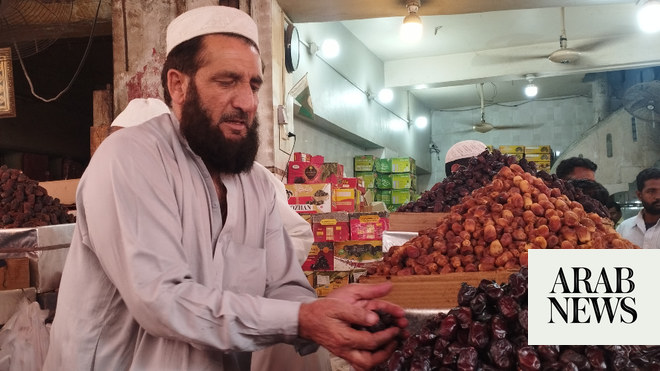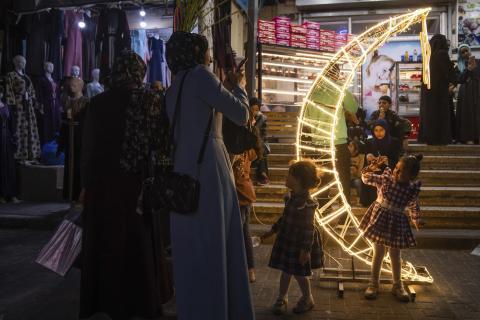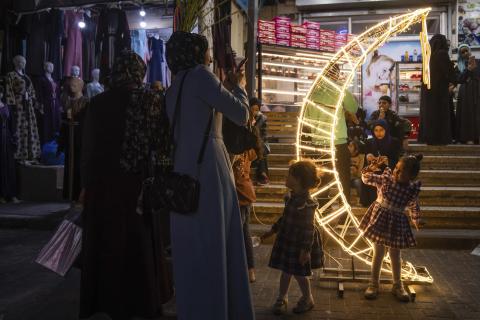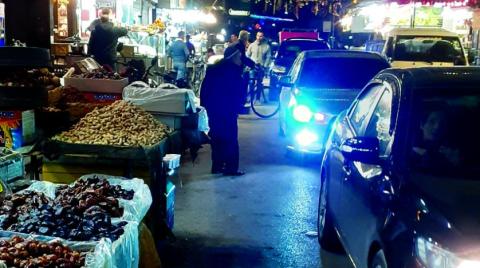
Mohammed Gul walked past a row of hawkers in a bustling Kabul street, nodding in dismay whenever he discussed the cost of fruit and vegetables with the people who were selling them. The prices had skyrocketed with the arrival of Ramadan, the holy month of fasting.
“Do you, as Muslims, have to increase the prices by 10, 15 and 25 percent because of Ramadan?” he demanded to know, his patience running out, even as some traders tried to convince him otherwise.
One hawker pointed the finger at wholesale traders for the hike in prices. “Uncle, I am a poor man myself and know how you feel, we are not responsible for the increase,” a hawker named Zabihullah told Gul, a 56-year-old civil servant. “The businessmen who are involved in exports and imports or bring the goods to main markets set the price.”
Other shoppers were also cross about price hikes in Ramadan, recalling what their relatives overseas had told them about some supermarkets and shops even lowering prices during the holy month.
“Ramadan is the month of blessings, forgiveness and time to help the poor and each other,” a shopper named Hakimullah told Arab News. “But in Afghanistan these traders are so greedy and not fearing God and put the prices up for their own interest.”
He said the government, which is locked in a war with the Taliban and beset by internal rifts, was not monitoring market prices. Officials at the Ministry of Commerce would not say if the government had any mechanism in place to control costs. Municipal authorities tasked with monitoring prices were nowhere to be seen in any of Kabul’s major markets on Monday.
Another trader said a reason for the price increase was the devaluation of the local currency, the Afghani. But shoppers disagreed, saying that prices rose every time Ramadan began.
Wealthier Afghans faced no such obstacles, with some even importing their goods from Australia, France and Turkey.
The gap between the rich and poor is increasing in Afghanistan, despite the flow of hundreds of billions of foreign aid since the Taliban’s ouster.
President Ashraf Ghani, in his Ramadan message, urged people to show solidarity and help the needy ones.
He also repeated his call for a truce with the Taliban as proposed by a recent grand assembly, or loya jirga. But the militants have rejected the proposal.
Government officials and Taliban spokesmen have reported clashes and raids in various parts of the country, resulting in casualties on both sides.
The Taliban accused Afghan and US-led troops of killing civilians overnight in several areas during night-time operations. There was no immediate comment from the government about the Taliban"s claims.
The armed group has said it will continue to fight until foreign troops leave the country.












